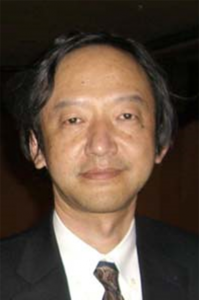Presented By: Center for Japanese Studies
CANCELLED - CJS Noon Lecture Series | Transition to a Modern Regime and Change in Plant Lifecycles: A Natural Experiment from Meiji Japan (with Tomohiro Machikita)
Tetsuji Okazaki, Professor of Economics, University of Tokyo

Unfortunately and due to unforeseen circumstances, this Noon Lecture has been cancelled. We hope to reschedule this event for the 2020-21 academic year.
This paper examines how political, social, and economic regime changes affect the lifecycles of manufacturing plants exploiting Japan’s transition from a feudal regime to a modern regime in the late nineteenth century as a natural experiment. Using plant-level data for 1902, including the foundation year of each plant, we explored how the experience-size profiles of plants differ before and after the regime change. Plants were found to grow much faster after the regime change and the acceleration of growth after the regime change was much greater for the plants in exporting industries, industries intensively using steam power, and plants adopting a corporate form. These findings suggest that access to export markets, access to modern technologies, and availability of the modern corporate form were the channels through which the regime change affected the experience-size profile of plants.
Tetsuji Okazaki is Professor of Economics at the University of Tokyo. He served as President of the International Economic History Association from 2015 to 2018. He has published extensively in major journals in economic history and economics, including Journal of Economic History and American Economic Review. His recent research interests include history of industrial organization and history of income distribution.
This event is cosponsored by the Consulate-General of Japan in Detroit.
If you are a person with a disability who requires an accommodation to attend this event, please reach out to us at least 2 weeks in advance of this event. Please be aware that advance notice is necessary as some accommodations may require more time for the university to arrange.
This paper examines how political, social, and economic regime changes affect the lifecycles of manufacturing plants exploiting Japan’s transition from a feudal regime to a modern regime in the late nineteenth century as a natural experiment. Using plant-level data for 1902, including the foundation year of each plant, we explored how the experience-size profiles of plants differ before and after the regime change. Plants were found to grow much faster after the regime change and the acceleration of growth after the regime change was much greater for the plants in exporting industries, industries intensively using steam power, and plants adopting a corporate form. These findings suggest that access to export markets, access to modern technologies, and availability of the modern corporate form were the channels through which the regime change affected the experience-size profile of plants.
Tetsuji Okazaki is Professor of Economics at the University of Tokyo. He served as President of the International Economic History Association from 2015 to 2018. He has published extensively in major journals in economic history and economics, including Journal of Economic History and American Economic Review. His recent research interests include history of industrial organization and history of income distribution.
This event is cosponsored by the Consulate-General of Japan in Detroit.
If you are a person with a disability who requires an accommodation to attend this event, please reach out to us at least 2 weeks in advance of this event. Please be aware that advance notice is necessary as some accommodations may require more time for the university to arrange.